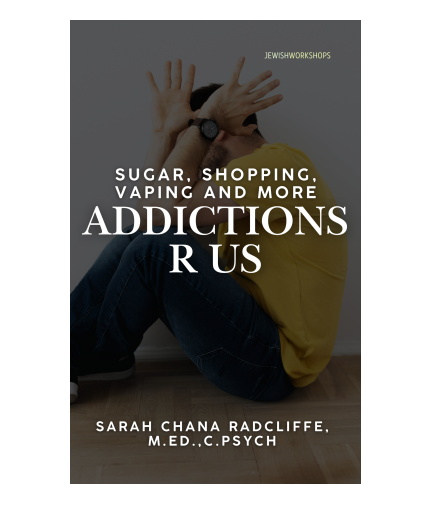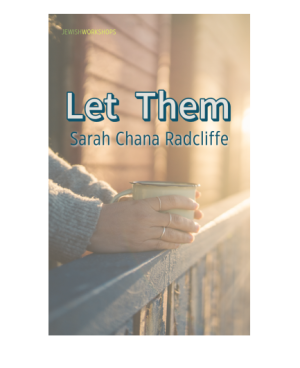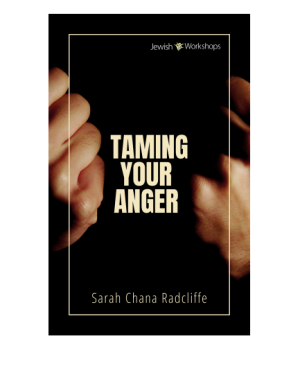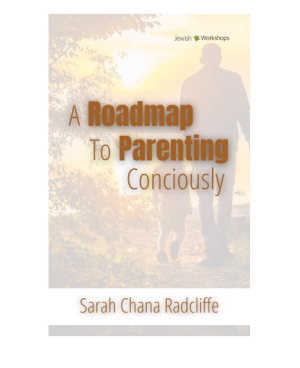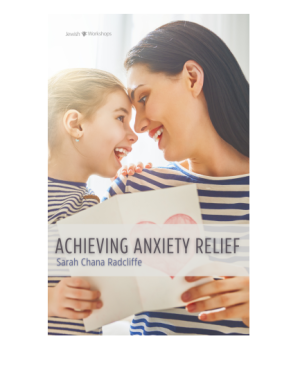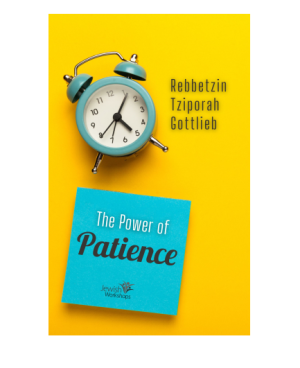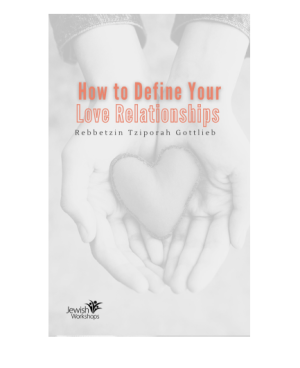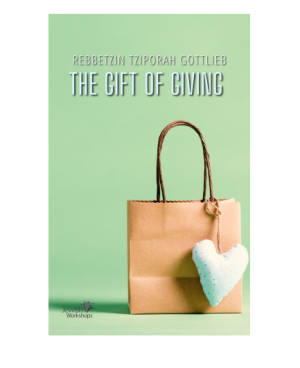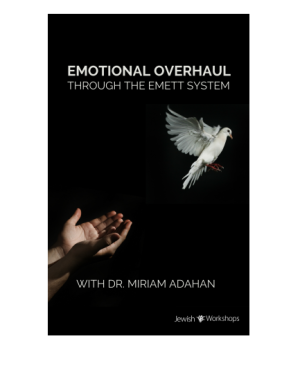Addictions R Us: Sugar, Shopping, Vaping and More
$397.00
Gain the skills to recognize, overcome and prevent addictions.
By joining this 8-part workshop, with top Jewish psychologist Sarah Chana Radcliffe you will discover:
- Addiction is universal and broader than substances – Everyone has addictive tendencies due to how our brains respond to dopamine; addiction includes emotions, behaviors, and everyday activities, not just drugs.
- The progression pattern matters – True addiction involves increasing tolerance, withdrawal symptoms, negative consequences, and inability to stop despite wanting to.
- Substance addictions are harder to break – Chemical addictions rob people of more free will than behavioral addictions because they create physical brain changes, especially when started young.
- Addictions serve a purpose – People become addicted to either reduce pain (self-medicating) or increase pleasure (seeking dopamine hits above natural wellbeing levels).
- Breaking patterns requires comprehensive approaches – Effective treatment combines self-monitoring, support systems, replacing addictions with healthier alternatives, and understanding underlying pain.
- Prevention and intervention vary by context – Education should start before age 12, consequences work differently by age, therapy should be tried before medication, and serious situations require professional help.
This series contains practical methods, class notes and guided meditations.
Session 1: What Addiction Is and Why We’re All Addicted
This class redefines addiction beyond substance abuse to include any compulsive behavior that alters our chemistry and consciousness. It explores the DSM-5 criteria for addiction and explains how the human brain’s response to dopamine makes everyone vulnerable to addictive patterns.
Session 2: Normal Addictions – Coffee, Reading Novels & More
This class examines how everyday activities like exercise, sugar consumption, coffee, crafting, and phone use can become addictive. It explains that healthy people typically rate their wellbeing around 6.5-7 out of 10, and activities become addictions when they increasingly disrupt wellbeing despite growing tolerance and withdrawal symptoms.
Session 3: A Deeper Dive Into Emotional Addictions – Anger, Sadness, Anxiety & More
This class explores how emotions themselves can become addictive through repeated practice that wires neural circuits stronger. It explains how anger, grief, worry, and even confusion can be used to avoid pain or generate energy, leading to patterns where we need more frequent emotional hits.
Session 4: A Deeper Dive Into Behavioral Addictions – Gambling, Shopping, Porn & More
This class examines behavioral addictions including shopping, planning, phone use, and affairs, focusing on how they provide mood elevation and distraction from life’s challenges. It emphasizes that addictions must have negative side effects and grow over time to distinguish them from simple habits.
Session 5: A Deeper Dive Into Physical Addictions – Vaping, Drinking, Drugging and More
This class covers substance addictions including sugar, nicotine, alcohol, marijuana, and opioids, explaining how these substances hijack the brain and create powerful cravings. It stresses the importance of educating children before age 12 about addiction dangers and notes that the brain isn’t fully developed until age 25.
Session 6: Breaking Addictive Patterns
This class provides practical strategies for overcoming addictions, including self-monitoring, cold turkey approaches, 12-step programs, and writing down negative consequences. It explains the importance of replacing addictive behaviors with healthier alternatives and warns about the relapse risk when the “addict part” tells convincing stories.
Session 7: Q&A
This Q&A session addresses practical parenting concerns about sleep schedules, waking routines for children with ADHD, and helping children with cognitive distortions. It covers when behaviors become truly addictive versus just bad habits and provides guidance on using rewards, consequences, and appropriate interventions.
Session 8: Q&A, Part 2
This Q&A covers diverse topics including parent-child boundaries at all ages, medication versus therapy for dysregulation, and confronting loved ones about addictions. It addresses specific challenges like a 22-year-old with ADHD who smokes, emphasizes that substance addictions rob people of free will more than behavioral addictions, and stresses the need for professional help in serious situations.
Additional information
| Access Options | |
|---|---|
| Access Period | |
| Lecturer | |
| Supplementary Materials | |
| Number of Classes | |
| Length per class | |
| Format |
A registered member of the College of Psychologists of Ontario, Sarah Chana Radcliffe has been practicing marriage, parenting, and individual counseling for over 40 years. Sarah Chana is a well sought after lecturer on stress management, relationships, anger management and emotional well-being. She is the author of Raise Your Kids without Raising Your Voice, The Fear Fix, Make Yourself at Home, and five other books on family life and emotional well-being.
Courses by Sarah Chana Radcliffe:
This is the first forum/professional that is real and down to earth and knowledgeable enough to help us!!! You are the first professional that both me and my husband agree to listen to because you cover all the aspects!!!
I am really grateful that this is being offered. I currently don’t have a mentor in my life and I feel that this is giving me the chance to get some mentoring (and more!) in the most important area of my life!
I am amazed! Each time I try a tactic it really works.

